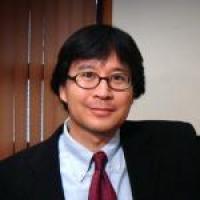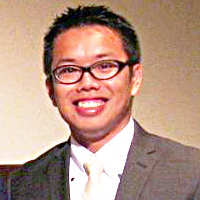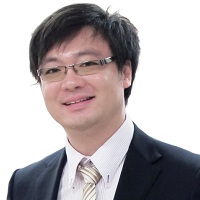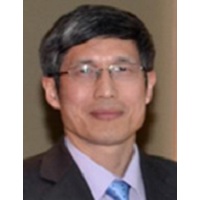Invited Speaker Profiles and Abstracts
Prof. Steven Cahan

Profile
Steven Cahan is a Professor of Financial Accounting at the University of Auckland Business School. His research interests are in the areas of auditing and financial reporting, and he has published over 55 academic research articles in journals including The Accounting Review, Contemporary Accounting Research, Auditing: A Journal of Practice and Theory, Journal of Banking and Finance, and Accounting Horizons. His PhD is from the University of Colorado, Boulder.
Steven is a Chartered Accountant and is a Fellow of Chartered Accountants Australia New Zealand. Prior to the merger of the Australian and New Zealand CA bodies, Steven served as Moderator for the New Zealand Institute's Professional Accounting School, served on the Academic Committee, and chaired the Research/PhD Scholarships Committee. He also regularly contributed to the NZ Institute's Chartered Accountants Journal writing a bi-monthly column on research. At a global level, he has been involved with the International Federation of Accountants serving as a member of the Consultative Advisory Group for the International Accounting Education Standards Board.
Abstract
How do social norms travel across the US? Evidence from CSR activism
We examine whether the social norms that institutional investors are exposed to in their home locality affect their willingness to support corporate social responsibility (CSR) activism in other parts of the US. We find that the shareholdings of non-local institutional investors from localities with strong CSR norms are positively related to the likelihood that a firm is targeted by a CSR-related shareholder proposal, the percentage of votes cast in favor of that proposal, and the likelihood that the proposal is ultimately successful. Further, we find that these relations are stronger if the target firm is located in an area with weak CSR norms. Thus, our results suggest that non-local institutional investors are influenced by the social attitudes they face at home, and these local norms can affect their support for CSR activism aimed at investees outside their home region. In particular, institutional investors from areas with strong CSR norms act as a conduit for promoting better CSR practices, especially for investees located in areas with weak CSR norms.
Dr. David Lau

Profile
David Lau is a Financial Accounting Lecturer at the University of Auckland Business School. His research interests are in the areas of auditing and voluntary disclosures. He obtained his PhD at the University of Auckland in 2016. David is also currently serving as the Director of the Postgraduate Programmes for the Accounting and Finance Department.
Prior to joining the University of Auckland as an academic, David has worked for the Inland Revenue Department (IRD) as a tax investigator for four years, during which time, he became a Chartered Accountant.
David has been actively involved in building relationships with academics in Japan. He was a visiting scholar at Kansai University, Japan in 2011 and 2015. He has also presented his research in numerous conferences and seminars in Japan.
Abstract (Japanese)
本稿では,わが国独自の自己株式取得方法であるToSTNeT買付を利用した,内部者の機会主義的行動を検証している.本稿の検証からは,自社株買い企業の中には,自社の取締役等の特定の大株主が有利に保有株を売却することを可能にするために,意図的に買付方法不明で自己株式の取得枠設定だけを先に公表して株価を吊り上げ,その後にToSTNeT買付を実施して高値で自己株式を取得している企業があることを示唆する強い証拠が得られている.
このような特定の内部者だけに利益を享受させる企業の行動は,会社財産の不当な社外流出に該当しかねず,株主平等の原則にも抵触し得る非倫理的な行為といえる.現行のToSTNeT買付制度には,内部者の機会主義的行動を許す余地が残されており,今後改善される必要があるであろう.
Abstract
Auction or ToSTNeT? A Guessing Game for Share Repurchases in Japan
In this paper, we investigate share repurchases executed in a unique market in Japan, Tokyo Stock Exchange Trading Network (ToSTNeT). This network is an alternative to open market repurchases (OMR) that allows buying firms to repurchase shares during off-auction hours, which are normally about 16 hours from the announcement of share repurchase program via ToSTNeT to the execution of share repurchase.
Recently, a few high profile cases have brought to light a potential loophole in the existing share repurchase program that are executed via ToSTNeT. In particular, we find that while most buying firms disclose the use of ToSTNeT when the announcement of share repurchase program is made, some buying firms do not disclose the use of ToSTNeT until a few days after announcing the share repurchase program. We classified buying firms that do not disclose the use of ToSTNeT at the time of share repurchase program is announced as “hidden ToSTNeT”. Overall, we find that buying firms that use hidden ToSTNeT experience temporary sharp share price increases, consistent with the market perceiving share repurchases as good news. However, when buying firms subsequently reveal that ToSTNeT will be used to repurchase shares, share prices immediately plummet. As the repurchase price is fixed at the closing price of the preceding day, selling firms are able to sell the shares at the inflated price (the price before the use of ToSTNeT is disclosed), thereby making significant profit on the trade. Importantly, we find that in the majority of cases, buying firms that use hidden ToSTNeT repurchase shares from large single investors who are also insiders of the buying firms as they are either executives or the founder of the buying firms.
Assoc. Prof. Wang Hao

Profile
Hao Wang is a professor at the University of Chinese Academy of Sciences, and an associate professor at the Institute of Software, Chinese Academy of Sciences. He received his Ph.D. in System Innovations, jointly educated at The University of Tokyo and University of California, Berkeley. He has wide research interests in Artificial Intelligence, Data Mining and Machine Learning, Intelligent Systems, and Knowledge-based Systems. His papers have been published in high-level conferences and journals, such as AAAI, ICDE, CIKM, AAMAS, SMC, HICSS, ECCV, IEEE Transactions on Pattern Analysis and Machine Intelligence (TPAMI), IEEE Transactions on Knowledge and Data Engineering (TKDE), IEEE Transactions on Image Processing (TIP), Expert Systems with Applications, Knowledge-Based Systems, etc.
Abstract
Idea Discovery: An Emerging AI Technique to Fuse Data Intelligence and Human Wisdom
Traditional knowledge discovery is a computer-based data mining process. However, the mining results are usually constrained by selected input data. Specifically, some implicit knowledge are not digitized in the data. Besides, how to make knowledge creation from knowledge discovery is a very interesting and challenging work. In this talk, I will present a new emerging technique, Idea Discovery [1], which is a human-centric technique to capture and fuse both data intelligence [2] and human wisdom [3], thereby further making knowledge creation for the best decision support.
References
[1] Wang, H., and Ohsawa, Y. "Idea discovery: A scenario-based systematic approach for decision making in market innovation." Expert Systems with Applications 40.2 (2013): 429-438.
[2] Wang, W., Zhang, C., Wang, H. et al. “A cognition graph approach for insights generation from event sequences”, Cluster Computing (2017). doi:10.1007/s10586-017-0744-4
[3] Wang, H., et al. "Human-centric computational knowledge environment for complex or ill-structured problem solving." Systems, Man and Cybernetics (SMC), 2014 IEEE International Conference on. IEEE, 2014.
Dr. Weiming Shen

Profile
Dr. Weiming Shen is a Senior Research Scientist at the National Research Council Canada and an Adjunct Professor at the University of Western Ontario and McMaster University. He is a Distinguished Lecturer of IEEE SMC Society, a Fellow of IEEE, a Fellow of Engineering Institute of Canada (EIC), and a Professional Engineer of Ontario (PEO). He received his Bachelor and Master’s degrees from Northern (Beijing) Jiaotong University, China (in 1983 and 1986 respectively) and his PhD degree from the University of Technology of Compiègne, France, in 1996.
He is an internationally-recognized expert on Agent-Based Collaborative Technologies and Applications. He has published several books and over 400 papers in scientific journals and international conferences in the related areas. His work has been cited over 9,000 times with an h-index of 46. He has been invited to provide over 90 invited lectures/seminars at different academic and research institutions over the world and keynote presentations/ tutorials at various international conferences.
Abstract
Internet of Things, Big Data, and Smart Applications
The Internet of Things (IoT) refers to uniquely identifiable objects as well as their virtual representations in an Internet-like structure. It is related to a number of disciplines and technologies that enable the Internet to reach out into the real world of physical objects and their environments. It has been hailed as the most potentially disruptive technological revolution of our lifetime after the Web and mobile accessibility. It becomes even more promising with smart applications like smart cities, smart Grid, smart factories, smart buildings, smart homes, and smart cars. On the other hand, Big Data is a broad term for data sets so large or complex that traditional data processing technologies are inadequate. It has recently been considered as a technology and become a very active research area primarily involving topics related to machine learning, database, and distributed computing. It has been claimed that “the success or failure of the Internet of Things hinges on Big Data”. Based on many years of first-hand experience, this talk will provide an overview of IoT and Big Data, including state-of-the-art and future trends, with a focus on how IoT and Big Data are linked with and applied in various industrial domains and societies.